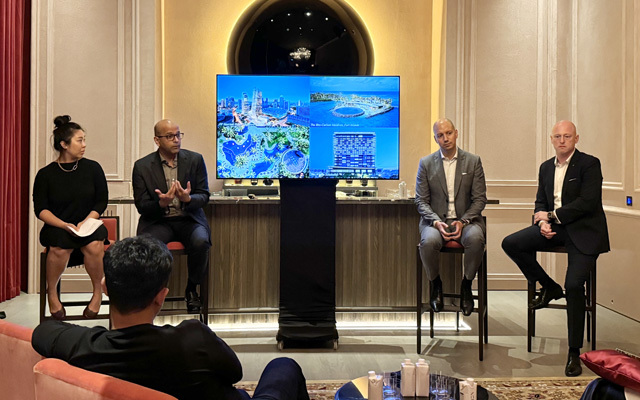Marriott International is laying the groundwork for long-term sustainability, and has marked the new year as one of “activation”.
According to Neeraj Govil, senior vice president of operations, Asia Pacific (excluding China), “2024 is going to be the year of activation, where what gets measured gets done”.

He said: “We are building accountability into our systems this year (previously, Marriott’s hotels handled in their individual capacity), and have made sustainability a business imperative.”
To achieve this, Marriott has created a new role – director of sustainability, Asia Pacific excluding China – that will lead the company to a more positive impact.
Guided by Marriott International’s Serve 360 environmental goal – launched in 2017 – to achieve net-zero emissions by 2050, the company recently announced 10 initiatives. These include sourcing for renewable energy, the installation of EV chargers, serving responsibly-sourced seafood, tracking waste, and conducting energy audits.
“In every major market, our general managers come together for a Business Council, where they will discuss key issues. We have a Business Council focused on sustainability, as there is value in collaborating,” shared Govil.
However, the journey towards sustainability is unique for each hotel, be it a new establishment like The Singapore Edition, or a decade-old property like W Singapore – Sentosa Cove.
Ranim Ben Romdhane, general manager of The Singapore Edition, highlighted how the design of the hotel incorporated sustainable features from the outset. Aside from the harvesting of rainwater for plant irrigation to energy-efficient room systems, chef uniforms are also made from recycled plastic bottles.
“We also build partnerships, such as the one we have with chef Josh Niland, who has built his reputation around sustainable seafood. Our restaurant receives fish as a whole, and our team processes it and uses every part (95 per cent of the fish except the gallbladder),” he elaborated.
The Singapore Edition also boasts an Edition Lab, a space in the hotel’s underbelly which the F&B team uses, for example, to explore how the pulp of carrots can be used to make gin or carrot soda, to create new tipples for its zero-waste bar.
He added: “Technology can also help us run a more sustainable operation. We do not have a large breakfast buffet, we have a breakfast table (with a smaller selection), and we use technology to capture guest preferences, what dishes or items they are looking for.”
Meanwhile, Christian Metzner, general manager of W Singapore – Sentosa Cove, emphasised the importance of creating a clear roadmap for integrating sustainability into operations, and being receptive and learning from other hotels across the Marriott portfolio.
Metzner elaborated: “There are so many stakeholders and partners, we can’t just change everything in one day. What I’ve learnt is to focus on the low-hanging fruits, such as the procurement of our coffee beans (from sustainable sources), and the removal of single-use plastics across the hotel. Other changes include the replacement of more efficient chillers, but this is not something you can do overnight.
“Next year, fingers crossed, we will be going to change all our guestrooms. After this, we will work on water filtration and so on. We’re also exploring solar and wind energy.”
Similarly, Metzner has also established sustainable partnerships with One Marina, as well as the Sentosa Development Corporation.





















